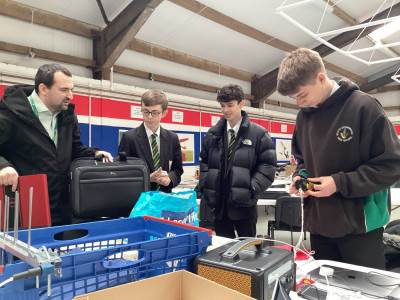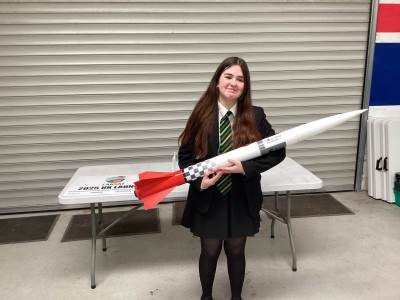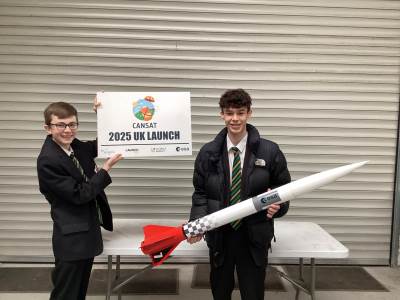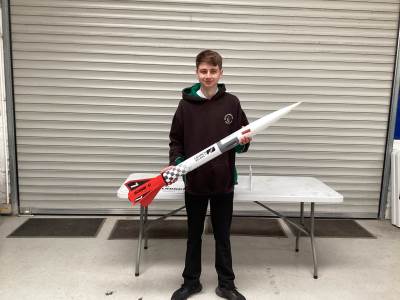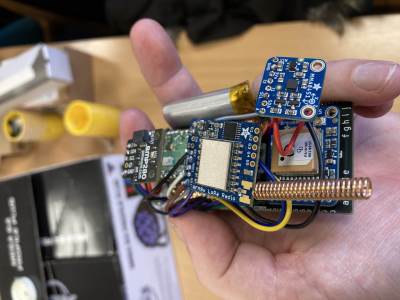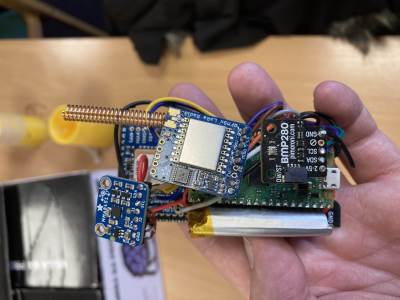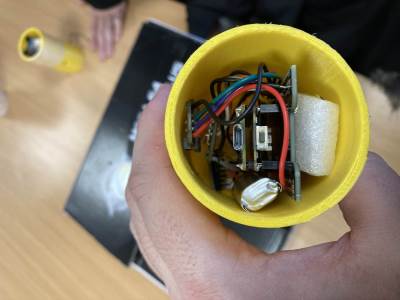CanSat Rocket Launch
Congratulations to Harry, Matthew and Poppy who successfully launched their CanSats, with the help of Connaugh, on board a real rocket at the British Model Flying Association headquarters in Buckminster on the 26th March.
The rocket accelerated from 0 to 200 mph in 0.9 seconds and exposed the CanSat inside to 20g of force. Only 10% of CanSat launches successfully gather and broadcast data from the sensors to a ground station. This 10% now also includes the aforementioned students as all of their CanSat’s sensors worked perfectly and broadcast full data to the waiting ground station.
This exciting day was the culmination of a European Space Agency initiative aimed at secondary school students, to develop their Technology, Physics, and Programming skills by offering the practical experience of working on a small-scale space project called a CanSat. Students were responsible for all aspects of the project: selecting the mission objectives, designing the CanSat, integrating the components, testing, preparing for launch and then analysing and reporting the data.
A CanSat is a simulation of a real satellite, integrated within the volume and shape of a soft drink can. The challenge for the students was to fit the major subsystems found in a satellite (such as power, sensors and a communication system) into this minimal volume.
In the UK competition the CanSat is launched to an altitude of 300-400 metres by rocket to carry out scientific experiments designed by the students, parachuting back to Earth to achieve a safe landing.
Thank you to Mr King for his expert guidance.
CANSAT





